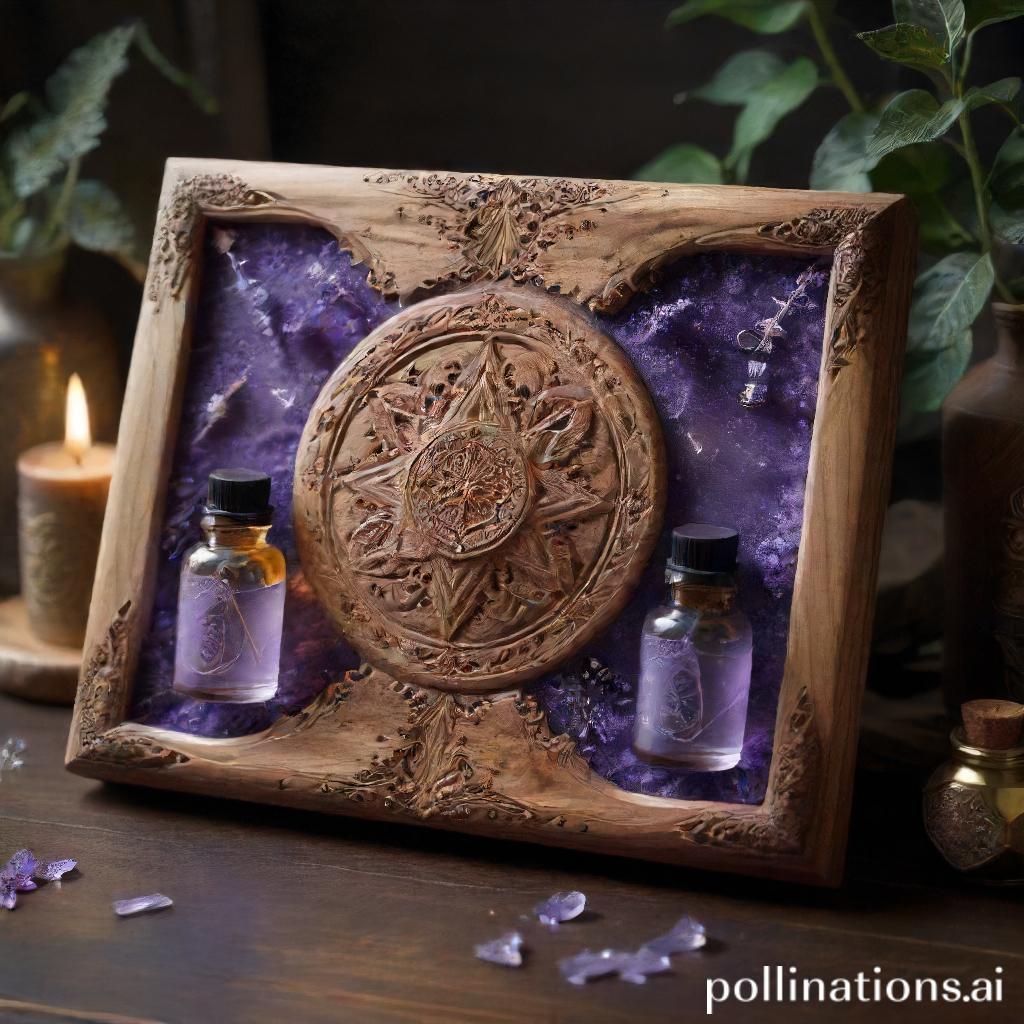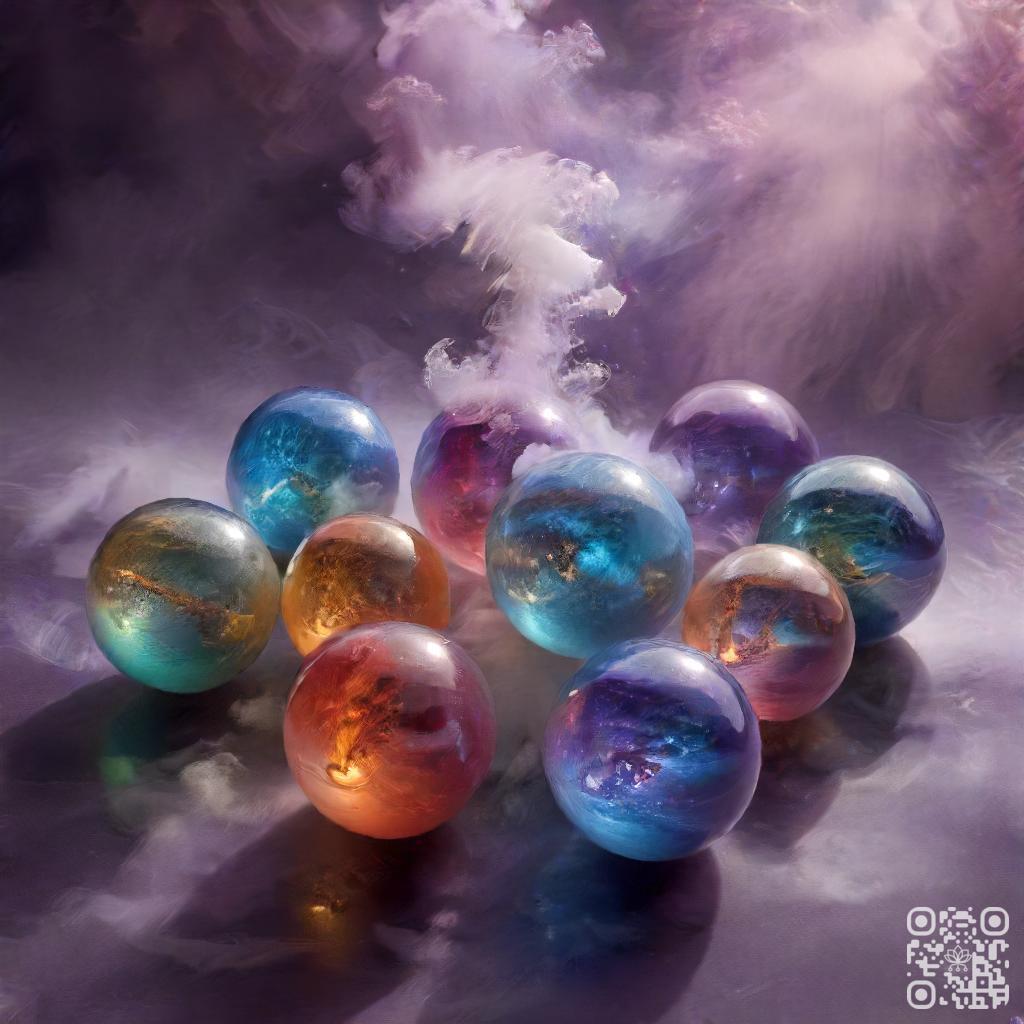Aromatherapy is a holistic healing practice that uses essential oils to promote physical, emotional, and spiritual well-being. When used for spiritual connection, aromatherapy can help individuals connect with their inner selves, amplify meditation practices, and promote a sense of calm and relaxation.
Essential oils such as frankincense, lavender, and sandalwood are commonly used for their spiritual properties. Aromatherapy can be a powerful tool for those seeking to deepen their spiritual practice and connect with their higher selves.
AROMATHERAPY BASICS
1. Essential Oils Demystified
In this section, we will scrutinize the fascinating world of essential oils and demystify their properties and uses. Essential oils are highly concentrated plant extracts that capture the essence of various plants, flowers, and herbs. They have been used for centuries for their therapeutic benefits and aromatic qualities. In regard to essential oils, quality is of utmost importance. …
2. Selecting the Right Scents for You
Choosing the right essential oils can be a personal and subjective experience. Different scents have different effects on individuals, and it’s essential to select the ones that resonate with you. Whether you’re looking for relaxation, invigoration, or mood enhancement, there’s an essential oil that can cater to your needs. …
3. Importance of Quality Oils
In regard to essential oils, quality matters. High-quality oils are sourced from plants grown in their natural habitat, without the use of pesticides or synthetic additives. These oils undergo rigorous testing to ensure their purity and potency. Investing in quality oils guarantees that you’re getting the maximum therapeutic benefits and optimal results. …
| Essential Oil | Benefits |
|---|---|
| Lavender | Relaxation, stress relief |
| Peppermint | Energy boost, mental clarity |
| Tea Tree | Antiseptic, skin care |

AROMATHERAPY PRACTICES
Aromatherapy is a practice that utilizes the power of essential oils to augment physical, emotional, and spiritual well-being. In this section, we will investigate various techniques and practices of aromatherapy.
Inhalation Techniques for Spirituality
Inhalation is one of the most popular ways to enjoy the benefits of aromatherapy. By inhaling the aromatic molecules of essential oils, you can stimulate your senses and promote spiritual healing. One effective technique is to add a few drops of your favorite essential oil to a diffuser or a bowl of hot water. Close your eyes, take deep breaths, and allow the aroma to envelop you, creating a sense of peace and tranquility.
Creating a Tranquil Aromatic Space
Transform your living space into a serene oasis with the help of aromatherapy. Start by selecting essential oils that promote relaxation, such as lavender or chamomile. Dilute a few drops of the oil in water and use a spray bottle to mist your surroundings. You can also place aromatic candles or reed diffusers in strategic locations to create a calming ambiance. With a tranquil aromatic space, you can unwind, meditate, or simply enjoy moments of tranquility.
Enmeshing Oils in Daily Rituals
Make aromatherapy an integral part of your daily rituals to enrich your overall well-being. Begin your day by adding a drop of invigorating essential oil, like peppermint, to your morning shower gel. The refreshing aroma will awaken your senses and energize you for the day ahead. Incorporate essential oils into your skincare routine by adding a few drops to your moisturizer or creating your own customized facial oil blend. In the evening, wind down by adding a calming oil, such as ylang-ylang, to your bathwater for a soothing and relaxing experience.
SCENTS AND CHAKRA ALIGNMENT
1. Connecting Aromas with Energy Centers
In the realm of chakra alignment, the power of scents should not be underestimated. Each chakra in our body is associated with specific energy centers, and by using aromas, we can augment the balance and flow of energy within these centers.
- Root Chakra: Connect with the grounding energy of the root chakra by using earthy scents such as patchouli or vetiver. These aromas can help you feel more grounded and secure.
- Sacral Chakra: Embrace your creative and passionate side with scents like orange or ylang-ylang. These aromas can stimulate the sacral chakra and augment your sense of pleasure and abundance.
- Solar Plexus Chakra: Boost your confidence and personal power with scents like lemon or ginger. These aromas can invigorate the solar plexus chakra and help you assert yourself more effectively.
- Heart Chakra: Open your heart to love and compassion with scents like rose or jasmine. These aromas can soothe and balance the heart chakra, fostering deeper connections and emotional healing.
- Throat Chakra: Clear communication and self-expression can be enhanced with scents like peppermint or eucalyptus. These aromas can help unblock the throat chakra and promote effective communication.
- Third Eye Chakra: Deepen your intuition and spiritual awareness with scents like lavender or frankincense. These aromas can stimulate the third eye chakra and amplify your inner wisdom and clarity.
- Crown Chakra: Connect with higher consciousness and spiritual enlightenment with scents like sandalwood or lotus. These aromas can elevate the crown chakra and facilitate a deeper connection with the divine.
2. Balancing Chakras through Aromatherapy
Aromatherapy is a powerful tool for balancing and aligning the chakras. By using essential oils and aromatic blends, you can harness the healing properties of scents to promote overall well-being and chakra harmony.
Start by selecting essential oils that correspond to each chakra’s energy. Create a personalized blend by combining a few drops of each oil and diluting it with a carrier oil. Massage the blend onto the corresponding chakra area or use it in a diffuser to enjoy the aromas throughout your space.
Regular aromatherapy sessions can help restore balance to your chakras, resulting in improved physical, emotional, and spiritual well-being. Remember to choose high-quality oils and consult a certified aromatherapist for personalized guidance.

AROMATHERAPY AND MEDITATION
In the realm of meditation, aromatherapy has emerged as a powerful tool to enrich the experience and deepen the connection with oneself. By amalgamating carefully selected scents, practitioners can create a multi-sensory environment that promotes relaxation and focus. This section explores the ways in which aromas can elevate your meditation practice.
1. Enhancing Meditation with Aromas
Using specific essential oils and blends, aromatherapy can heighten the effects of meditation. Certain scents, such as lavender or frankincense, have been traditionally associated with relaxation and tranquility. By diffusing these oils in your meditation space or applying them topically, you can create a calming atmosphere that helps you enter a meditative state more easily.
Additionally, different aromas can evoke specific emotions or states of mind. For example, citrus scents like lemon or orange can promote mental clarity and uplift the spirit. Conversely, woody scents like sandalwood or cedarwood can ground and center the mind. Experimenting with different aromas can help you find the perfect scent to support your meditation practice.
2. Crafting a Sacred Meditation Space
Creating a dedicated meditation space can greatly augment your practice. By designating a specific area in your home or outdoor space for meditation, you are signaling to your mind and body that this is a sacred space for self-reflection and inner peace. Here are some tips for crafting a sacred meditation space:
- Choose a peaceful location: Find a quiet corner of your home or a serene spot in nature where you can meditate undisturbed.
- Add meaningful decorations: Surround yourself with objects that inspire you, such as crystals, statues, or artwork that symbolize peace and spirituality.
- Create a comfortable seating arrangement: Whether it’s a cushion, a meditation bench, or a comfortable chair, ensure that you have a supportive and comfortable seat for your practice.
- Set the mood with lighting: Use soft, diffused lighting or candles to create a soothing ambiance in your meditation space.
- Include elements of nature: Bring in elements like plants, flowers, or natural sounds to connect with the calming energies of the natural world.
As you delve deeper into the world of aromatherapy and meditation, remember to trust your intuition and traverse what resonates with you personally. Every individual has unique preferences and experiences, so allow yourself the freedom to experiment and perceive the scents and practices that optimize your meditation journey.
| Essential Oils | Properties |
|---|---|
| Lavender | Calming, promotes relaxation |
| Frankincense | Spiritual, enhances focus |
| Lemon | Mental clarity, uplifting |
| Orange | Invigorating, energizing |
| Sandalwood | Grounding, meditative |
| Cedarwood | Centering, promotes focus |

AROMATHERAPY FOR EMOTIONAL WELLNESS
Aromatherapy is a holistic healing practice that utilizes essential oils to promote emotional well-being. By harnessing the power of scent, aromatherapy can elicit various emotional responses and help manage stress and anxiety.
Eliciting Emotional Responses
Essential oils have the ability to evoke specific emotions and optimize mood. Different scents can stimulate feelings of relaxation, happiness, or rejuvenation. For example, lavender oil is known for its calming properties and can help reduce feelings of stress and promote better sleep. Contrarily, citrus oils like lemon and orange can uplift the spirits and boost energy levels.
Managing Stress and Anxiety
Stress and anxiety are common in today’s fast-paced world, and aromatherapy offers a natural and effective way to cope with these emotional challenges. Certain essential oils, such as chamomile and bergamot, have soothing properties that can help reduce stress levels and promote a sense of calmness. These oils can be diffused in the air or used in massage oils to provide relaxation and relief.
Aromatherapy and Your Well-being
Integrating aromatherapy into your daily routine can have a positive impact on your overall well-being. Whether you choose to use essential oils through inhalation, topical application, or in bath products, the therapeutic benefits can be immense. Aromatherapy can help create a relaxing atmosphere, improve sleep quality, boost mood, and alleviate emotional imbalances.
The Power of Essential Oils: A Quick Overview
Essential oils are highly concentrated plant extracts that contain the natural fragrance and beneficial properties of the plant. These oils are derived from various parts of plants, such as leaves, flowers, stems, and roots. Each essential oil has its own unique chemical composition, giving it specific therapeutic qualities.
Aromatherapy and Emotional Wellness: An Overview
Aromatherapy has been used for centuries to support emotional well-being. The sense of smell is closely linked to the brain’s limbic system, which plays a crucial role in processing emotions and memories. By inhaling essential oils, the scent molecules directly affect the limbic system, triggering emotional and physiological responses.
How to Incorporate Aromatherapy into Your Life
There are numerous ways to incorporate aromatherapy into your daily life. You can use essential oils in a diffuser, add them to your bath, create personalized massage oils, or even make your own natural cleaning products. Remember to always dilute essential oils properly and follow safety guidelines to ensure the best experience.
Aromatherapy for Emotional Wellness: An Informative Table
| Essential Oil | Emotional Benefits |
|---|---|
| Lavender | Calming, reduces stress and anxiety |
| Chamomile | Soothing, promotes relaxation |
| Bergamot | Uplifting, relieves tension |
| Lemon | Energizing, improves mood |
| Orange | Refreshing, boosts positivity |
Read More:
1. Align with Aroma: Chakra Harmony Unleashed
2. Revitalize Your Spirit: Energy Flow in Chakra